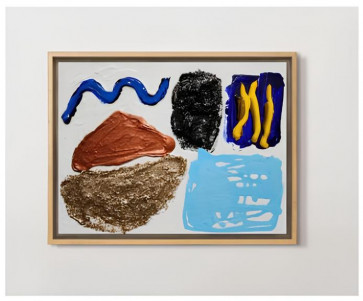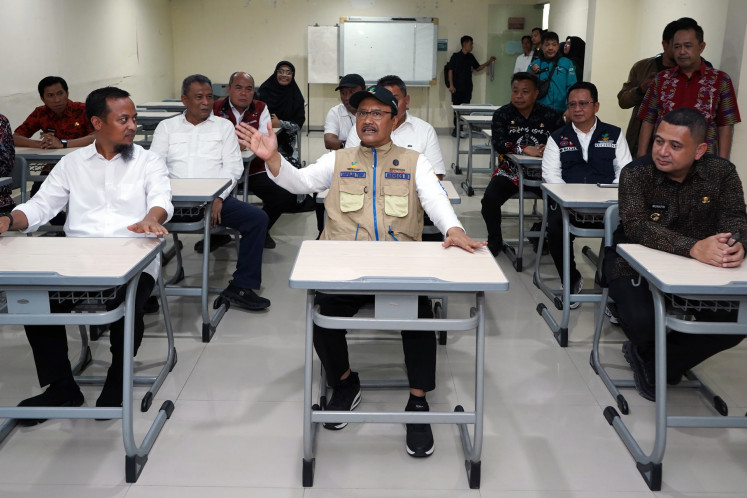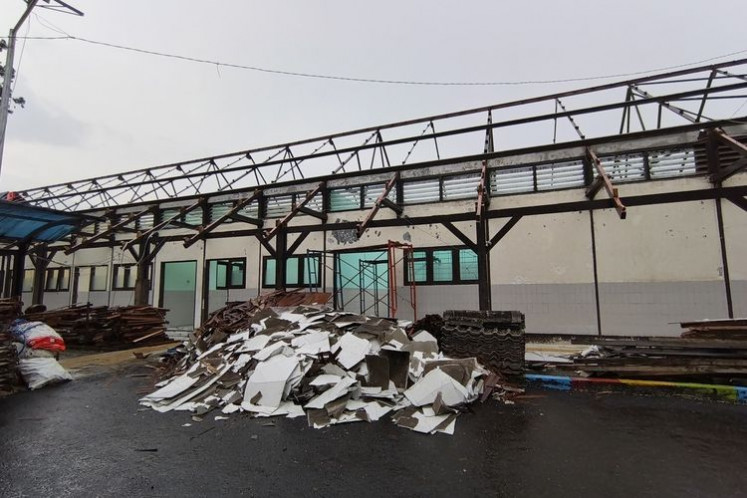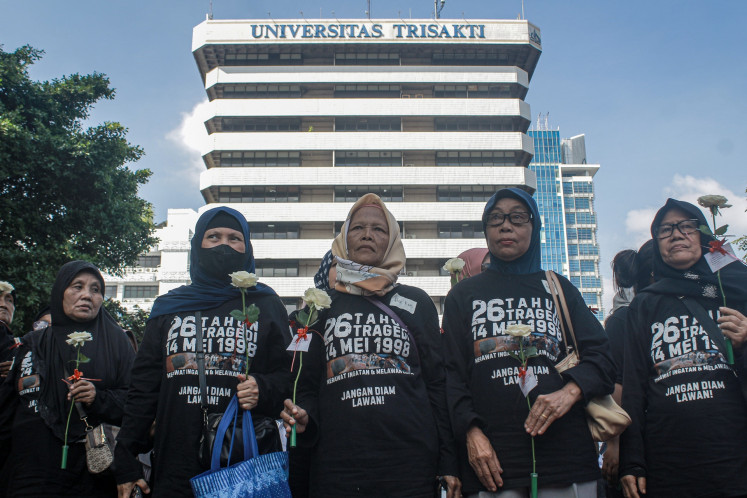Hartonos on top of ‘Forbes’ rich list
Brothers R
Change text size
Gift Premium Articles
to Anyone

Brothers R. Budi and Michael Hartono, who own the Djarum cigarette company and BCA Bank, have topped Forbes magazine’s list of Indonesia’s 50 richest men for the 10th year in a row.
The Hartonos’ combined net worth came in at more than US$34 billion, almost double the previous year’s figure of $17.1 billion following a nearly 50 percent rise in the value of their stake in listed BCA.
On a separate list, Budi’s wealth was estimated at $17.4 billion while Michael’s was $16.7 billion.
The brothers inherited kretek (cigarette clove) maker Djarum from their family decades ago but decided to shift to banking, taking over BCA after the previous owners, the Salim family, lost control during the 1998 financial crisis.
The March 2018 list also saw a dramatic change as commodities-based billionaires gave way to their non-commodities-based colleagues.
Indian-Indonesian polyester tycoon Sri Prakash Lohia climbed to number three from number five last December as his fortune increased by 9.38 percent to $7 billion compared to $6.4 billion late last year.
Lohia’s Indorama is now a petrochemicals powerhouse whose products include polyethylene, polypropylene and medical gloves.
The company has expanded its business in Africa by building a fertilizer plant in Nigeria.
Billionaire-cum-philanthropist Dato Sri Tahir was fourth with $3.5 billion. His Mayapada group’s fortune comes mainly from banking, hospitals and real estate.
One of his most generous donations was the $100 million given to the Bill and Melinda Gates Foundation in 2014 to combat polio in Indonesia.
He has also donated money to local universities.
“Education is important to change the fate of a nation. The rich get even richer because it is hard to see a poor kid get educated at a good university,” Tahir said in a past interview.
He is scheduled to visit Jordan and Iraq this month to help Palestinian and Syrian immigrants.
“I was born in Surabaya as a poor kid and I dreamed someday I would contribute something to this country,” he said.
Eka Tjipta Wijaya, who runs businesses under the Sinar Mas brand, is out from the top 20 after being number two on the December 2017 list.
Susilo Wonowidjojo and family, who run one of the biggest cigarette producers in Indonesia, PT Gudang Garam, were third last December but were ousted from the top 20 this year.
Salim group chairman Anthony Salim, who owns a 50 percent stake in instant noodle maker Indofood, did not make the top 20 either.
Institute for Development of Economics and Finance (Indef) economist Bhima Yudhistira Adhinegara said diversifying their investments had helped Indonesian billionaires retain or increase their fortunes.
Many of them have ventured into digital businesses.
“More and more conglomerates are investing in digital businesses to seek new growth.
“Lippo, for example, has invested heavily in e-commerce entities like mataharimall.com, e-money OVO and ride-hailing app Grab when its retail business declined,” he told The Jakarta Post.
He added that quick business diversification while having a lot of cash was the strategy used by the Hartono brothers.
Besides relying on Djarum cigarette products and BCA, the business group has also expanded into the retail sector by building Grand Indonesia shopping mall as well as investing in digital businesses such as online shopping site Blibli, Tiket.com and Kaskus.
“They diversified when their cigarette business was not yet in the sunset period. Then they started with property and stocks as investment variations,” Bhima said.
Investa Saran Mandiri analyst Hans Kwee told the Post that BCA was a huge contributing factor to the Hartono brothers’ wealth because the bank was efficient in its operations.
Its cost of funds was lower compared with other banks.
“Its cost of funds is below 3 percent while its loan interest rates are still between 7 and 10 percent. So BCA still gets a relatively big interest profit margin and that is not including the fee-based income,” he said.









